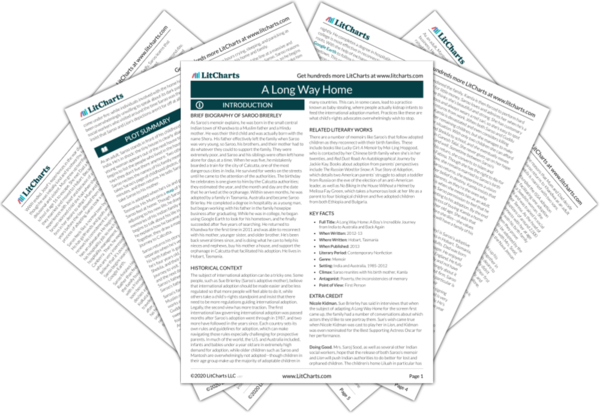Mum believes in some form of destiny, though it's unclear whether it's religiously motivated or not. Regardless, this places Saroo's adoption in the realm of destiny, as it's clear from her vision that his adoption was always going to happen. It's also worth noting that Mum conceptualizes adoption as a way to help others less fortunate than she is, which is a way for her to give back to a world that has, in her adult life at least, been very kind to her.
